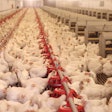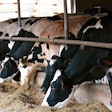Since the last dramatic spike in cereal prices last fall, something still in effect today, I have received many calls and emails asking me if and when prices will go down in 2013. This very same question has been the focus of recent discussions I had with a group of pig producers, and I am also aware that countries like the United States have already started looking for alternatives to traditional feedstuffs.
As a nutritionist, consultant, feed producer and a writer in the pig and poultry industry, I certainly want cereal prices to go down (or failing that, prices for pig meat to go up proportionally). Otherwise, we will continue to see pig numbers dropping, farms to keep closing, whilst production will be consolidating in fewer hands. Coupled with a worldwide financial crisis that leads many households to control expenditure on more expensive foods (like meat), one needs to be overly optimistic to believe reduced pig numbers will bring about a considerable increase in pig meat prices.
On the other hand, I do not see how cereal prices will go down any time soon. Certainly, a good harvest in a specific country will lower prices locally or for a given year globally. But, as long as we keep feeding our corn and wheat to our cars (that is, we convert cereals to biofuels), and barring any genetics breakthrough or any other such earth shattering development, I cannot foresee any relief in cereal pricing. Not in 2013, not next year, not in ten years. This was my answer in 2004 at a Nottingham conference, right after this biofuel policy had been implemented for a couple of years, and this remains my answer now; just because nothing has changed in the between.
I only need to add that in 2013, the US will feed to their cars about 40 percent of their national corn crop – by law! I do not think we, in the pig industry, can compete with that.













